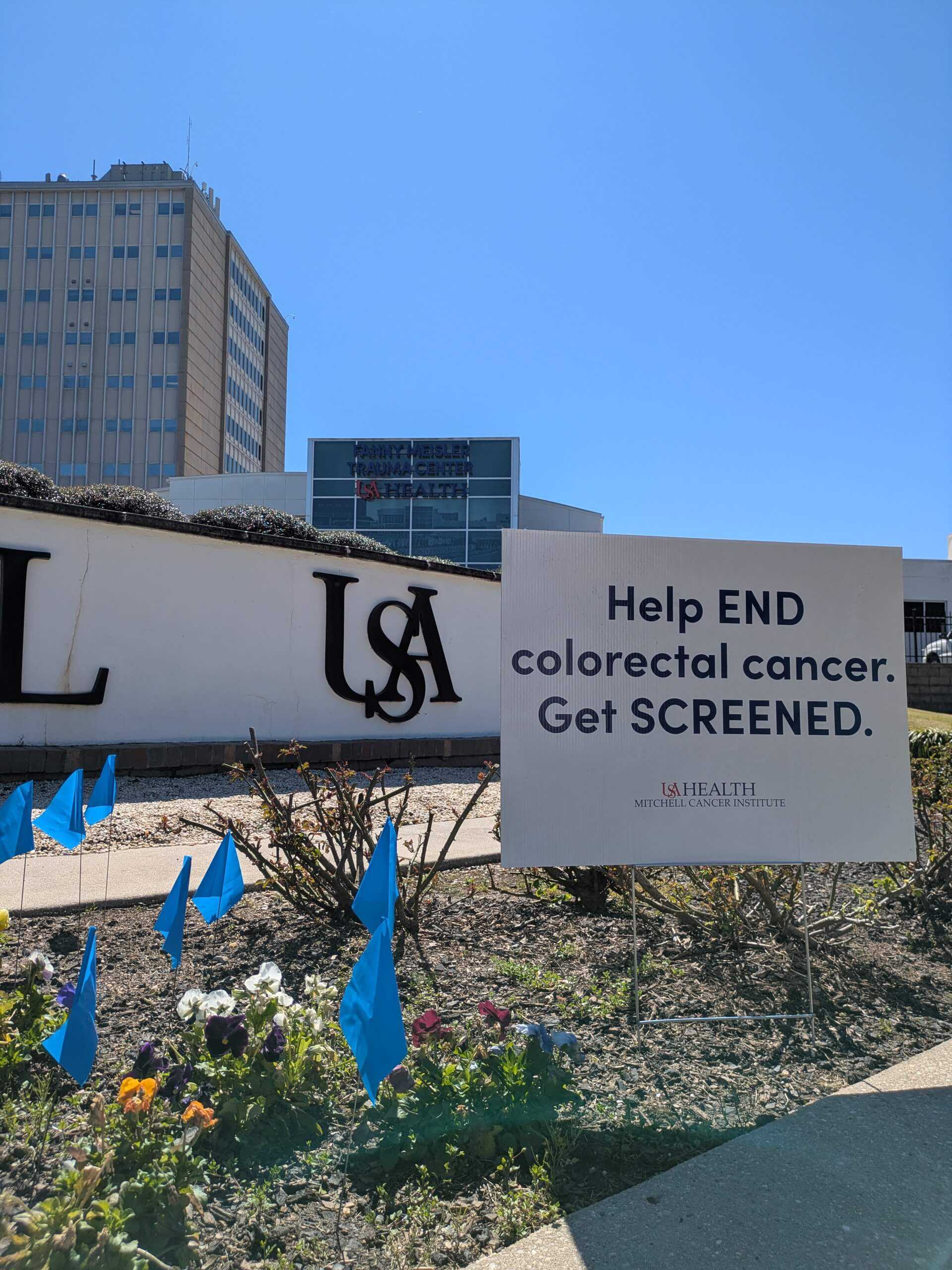
USA Health’s “Go Blue” campaign raises awareness for colorectal cancer in March
“The first step of colon cancer prevention is through regularly scheduled screenings,” said Ahmed Abdalla, M.D., medical oncologist at MCI.
By Jessica Jones
[email protected]
USA Health is raising awareness in March for colorectal cancer, a leading cause of cancer-related deaths in the United States for both men and women. In recognition of Colorectal Cancer Awareness Month, hundreds of small blue flags are displayed across several USA Health locations, including University Hospital, the Mitchell Cancer Institute (MCI), Providence Hospital, University Commons, and the Mapp Family Campus.

“We believe preventing colon cancer is better than treating it,” said Ahmed Abdalla, M.D., medical oncologist at MCI. “The first step of colon cancer prevention is through regularly scheduled screenings. The main goal of screening is to detect colon cancer early, or even better, to prevent it altogether by finding and removing polyps before they become cancerous.”
Colon cancer, also known as colorectal cancer, begins in the large intestine and can spread to other parts of the body if not caught early. It often starts as small growths called polyps, which can later develop into cancer. These polyps typically don’t cause symptoms early on, which is why screening is so crucial.
The recommended age for colorectal cancer screening is 45 for those at average risk. However, colon cancer is rapidly rising in young adults and often requires more aggressive treatment.

Individuals with a family history of colorectal cancer or conditions such as Crohn’s Disease or inflammatory bowel disease may need to begin screening earlier. Certain lifestyle factors, like diet and physical activity, can also influence a person’s risk.
“Symptoms like bloating, blood in the stool, or unexplained weight loss shouldn’t be ignored,” said Jamie Rich, MSN, FNP-C, a nurse practitioner at MCI. “These could be early signs of colorectal cancer, and getting checked early can make all the difference.”
The gold standard for colon cancer screening is a colonoscopy. This procedure allows doctors to look directly inside the colon using a flexible scope attached to a camera and take biopsies of abnormal tissue. A colonoscopy is generally recommended every 10 years.
Other tests for screening the colon include the Fecal Immunochemical Test (FIT) and Fecal Occult Blood Test (FOBT), which look for blood in the stool and are simple to do at home. These tests help identify issues that may not yet cause symptoms and are recommended once a year.
“Prevention through screening is one of the most powerful tools we have in fighting this disease,” said LaTasha Henry, M.D., gastroenterologist and gastroenterology medical director at Providence Hospital. “There are multiple methods of screening for colorectal cancer, but the most important detail is to get screened — no matter what method you choose.”
USA Health provides a multidisciplinary approach to ensure patients have multiple specialists reviewing their case, including preventing, detecting and treating illness.
Additionally, USA Health remains the only health system in the state and along the upper Gulf Coast to earn a three-year accreditation from the National Accreditation Program for Rectal Cancer (NAPRC), a quality program of the American College of Surgeons. Learn more about the accreditation at usahealthsystem.com.




